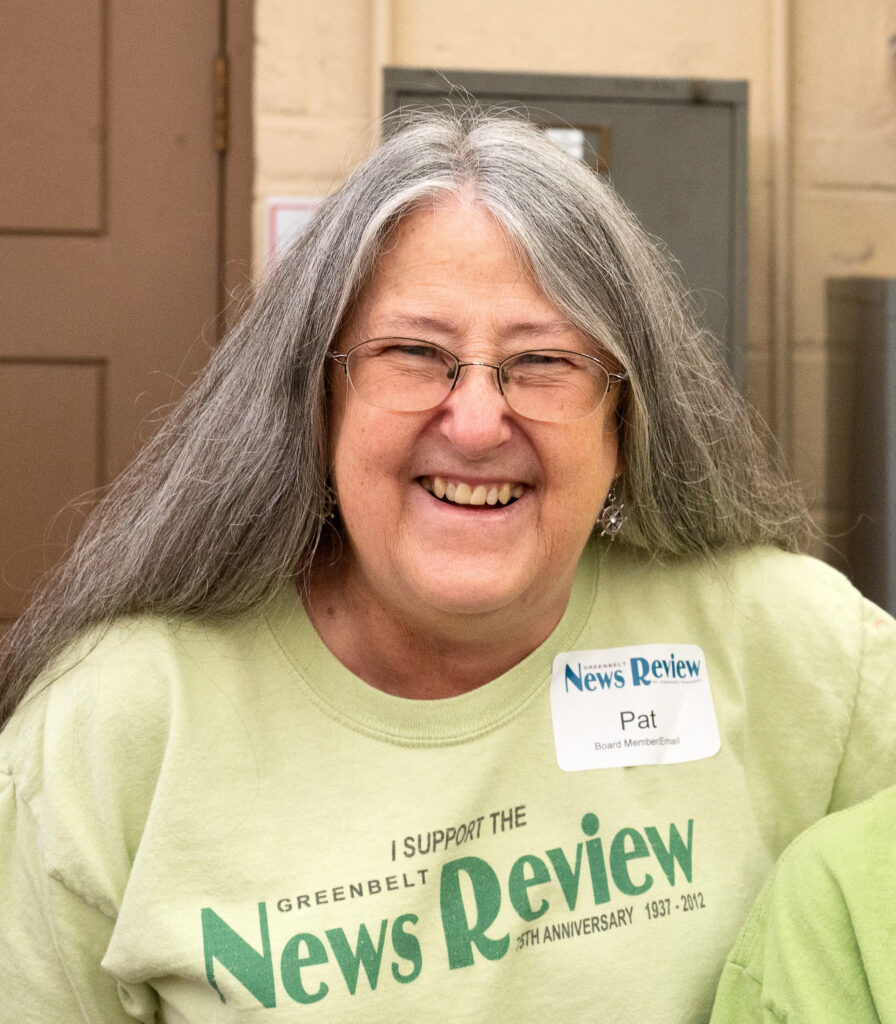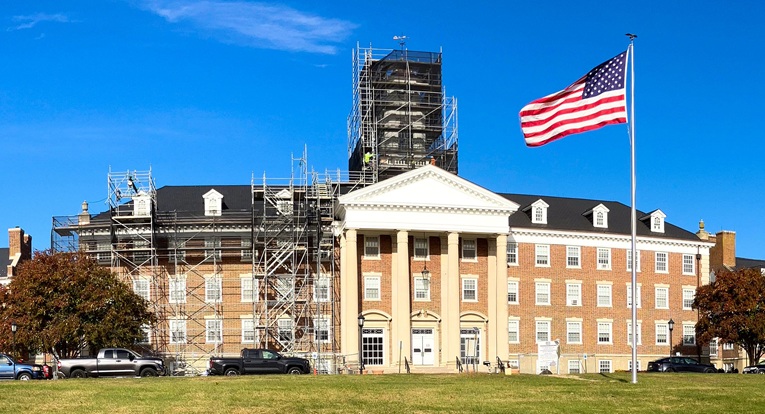Unlike members of a grand jury, people who are called for trial (or petit) jury duty serve for one day or one trial. All registered voters and people who have a driver’s license or an identification card through the Department of Motor Vehicles are in the pool and may receive a summons every year. However, jurors only have to serve once every three years, if called.
The summons lists a group number and a phone number to call after 6 p.m. on the day before the date of potential service. That phone call tells whether the group must report or is excused.
The following is an account of one individual on jury duty at the courthouse in Upper Marlboro in early December.
Logistics
Potential jurors park at the Equestrian Center and take the shuttle bus to the courthouse. The bus runs every five to seven minutes. Although the two locations are only about half a mile apart, walking is discouraged because the pedestrian bridge between the two is closed.
Everyone entering the courthouse must go through a metal detector and have all belongings scanned. No weapons of any kind are allowed, which is interpreted broadly to include many seemingly innocuous items, such as lighters and any metal silverware.
Potential jurors are expected to check in by 7:30 a.m. in the jury holding room on the second floor, which holds around 250 people. There are bathrooms within the juror area and many TVs around the room, which were tuned to HGTV.
Jurors are advised to bring their lunch, with plastic silverware and a cold pack if needed. The juror room has no microwave or refrigerator; vending machines were empty as they were scheduled to be replaced. There is a cafeteria in the courthouse, although a guard at the security checkpoint warned that service was slow.
There are only a few places to eat near the courthouse so jurors were advised to get carry-out if they went to any of these establishments and return to the courthouse as soon as they could. And reentering the courthouse means going through the security line again.
When all potential jurors are assembled in the morning, a court employee gives them a briefing on what they can expect during the day, which is “the unexpected.” Some jurors may spend all day in the lounge or be dismissed at any time throughout the day. Others will proceed through the process of jury selection and complete a trial. Or anything in between – cases may settle at any time during the process.
Juror 16’s Experience
As Juror 16 in a 79-person pool, I was a potential juror for a criminal trial featuring first degree murder, attempted murder and use of a firearm during commission of a felony. We were told that the trial was anticipated to last five days.
Escorted by bailiffs, we went upstairs to the courtroom. Those who couldn’t do stairs were escorted by another bailiff by elevator. The morning was spent in asking all the jurors a series of questions that enabled the judge to dismiss potential jurors for cause. Did we know the victim? the defendant? the witnesses? Had we been the victim of a crime? Did we belong to or support a number of advocacy groups? Did we believe expert witnesses or police officers were more inherently believable than other witnesses? Had we been to law school? Did we work in the justice system? Would it be a hardship, not just an inconvenience, to serve throughout a five-day trial?
People answering yes to each question stood and the judge either asked them questions in open court, had a bench conference or took down a list of juror numbers. For all questions, the overriding query was whether we could nevertheless review the evidence in a fair and impartial manner.
The judge excused a few people after the bench conference: someone who knew one of the victims, a Prince George’s County police officer who knew many of the witnesses, others for whom the reason was not apparent.
After a one-hour lunch break, the afternoon was spent in individual bench conferences with each juror. Those not being questioned read or looked at their phones. This process took almost four hours, at the end of which our pool of 79 was down to about 55, from which 12 jurors and two alternates were to be selected.
Then we formed a single line at the rail and were either seated or excused. Either the prosecutor or the defense could excuse, with no reason given. The judge advised us not to take it personally if we were excused. Both sides had to agree for a juror to be seated.
When 12 jurors were in the box, the judge asked if the sides were satisfied with the composition of the jury. The prosecution and defense then excused one person each that they had previously agreed to seat, including Juror 16.
The shuttle buses run less frequently in the evening, but one eventually came and took the excused jurors back to the parking lot. I was in my car at 7 p.m., 12 hours after I left it.
During the long final juror selection, impatience was becoming widespread. But the juror seated next to me retained her calm, saying, “Someone’s life is at stake here.”
Jury duty was at first interesting, then tedious, but throughout, it was important and necessary. It is, like voting, the duty of a citizen.




